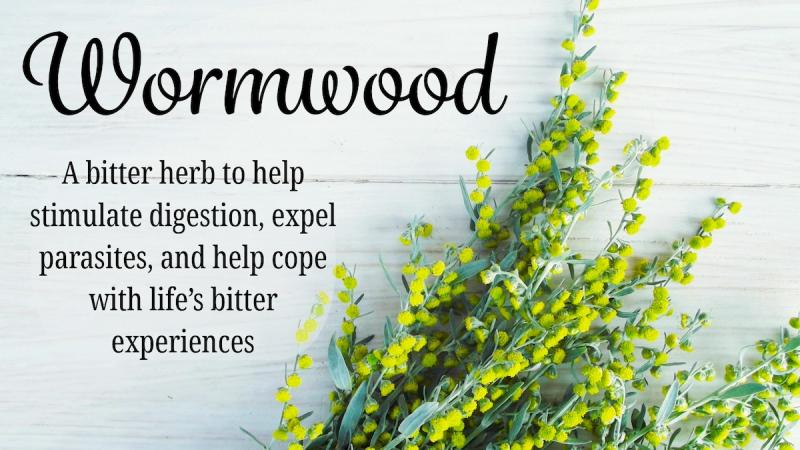
One of the disasters the Book of Revelation speaks of is the waters of the world becoming wormwood. And if you've ever tasted wormwood, you'll understand what a disaster that would be. Wormwood has been used to represent all that is bitter and nasty tasting and is considered to be one of the most bitter plants in the world. Even one part of it in 10,000 parts of water would still taste bitter. So waters that became wormwood would be undrinkable. Fortunately we don't have to drink a lot to appreciate its medicinal benefits.
Medicinal Benefits of Wormwood
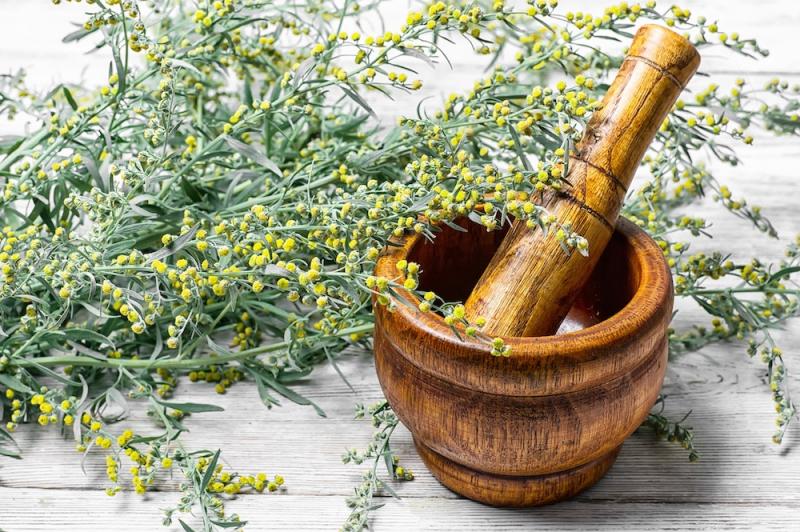 The common wormwood gets its name from being a woody plant that is used to get rid of intestinal worms. It has been used to expel tapeworms, roundworms, threadworms, and other intestinal parasites. Despite the origin of its name, herbalist Matthew Wood, whose expertise I greatly admire, claims it’s not a very effective anti-parasitic. Still, I believe it is useful, especially as an addition to enhance anti-parasitic formulas.
The common wormwood gets its name from being a woody plant that is used to get rid of intestinal worms. It has been used to expel tapeworms, roundworms, threadworms, and other intestinal parasites. Despite the origin of its name, herbalist Matthew Wood, whose expertise I greatly admire, claims it’s not a very effective anti-parasitic. Still, I believe it is useful, especially as an addition to enhance anti-parasitic formulas.
Beyond its anti-parasitic activity, the aromatic and bitter taste of wormwood stimulates stomach and digestive secretions, so it can used in digestive bitters formulas to stimulate digestive secretions and appetite. Like other bitters it also stimulates the flow of bile, helping to cleanse the liver.
Wormwood also has an effect on the female reproductive system. It stimulates menstruation and is not recommended for use during pregnancy as it may be potentially abortifacient. This appears to be true for many anti-parasitic herbs, especially plants like wormwood from the Artemesia genus. So I always advise pregnant women and nursing mothers not to do parasite cleanses.
Applied topically wormwood can help ease arthritis, sprains, rheumatism, and any stiff, cold tissues. Because of these properties, it can also be found as an ingredient in products applied topically to aid tissue healing.
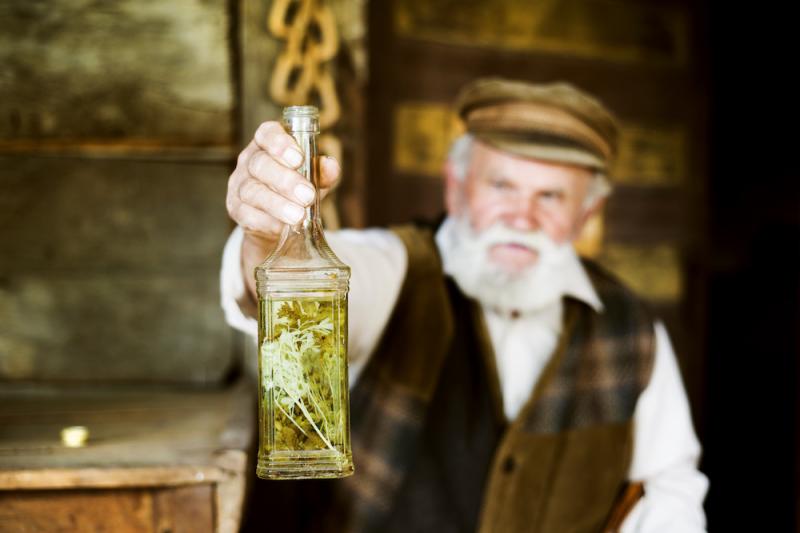
Thujone in Wormwood
Wormwood is a fragrant bitter and the essential oil contains a substance called thujone. This GABA receptor antagonist is stimulating and mood-altering, possibly acting as a mild hallucinogenic. It is also found in some of the essential oils of thuja’s and arborvitaes, as well as some junipers, mugwort, oregano, common sage, and tansy. Many of these herbs are considered antimicrobial and anti-parasitic like wormwood, so this compound may be at least partially responsible for wormwoods effects.
Wormwood’s Latin name (Artemisia absinthium) is connected to absinthe, an an alcoholic beverage that was made from wormwood, flavored with anise and fennel. Absinthe was drunk by a number of famous authors and artists including Ernest Hemingway, James Joyce, Lewis Carroll, and the famous impressionist, Vincent van Gogh. Van Ghogn was a heavy drinker, who suffered from psychotic episodes and delusions, which were claimed to be related to his use of absinthe, which has been accused of being addictive and mildly hallucinogenic. The research on this is unclear, but the possibility remains that the beverage may be slightly mind-altering. Absinthe saw widespread bans at the beginning of the 21st century but has been seeing a slow return over the last few decades.
Balancing the Bitter with the Sweet
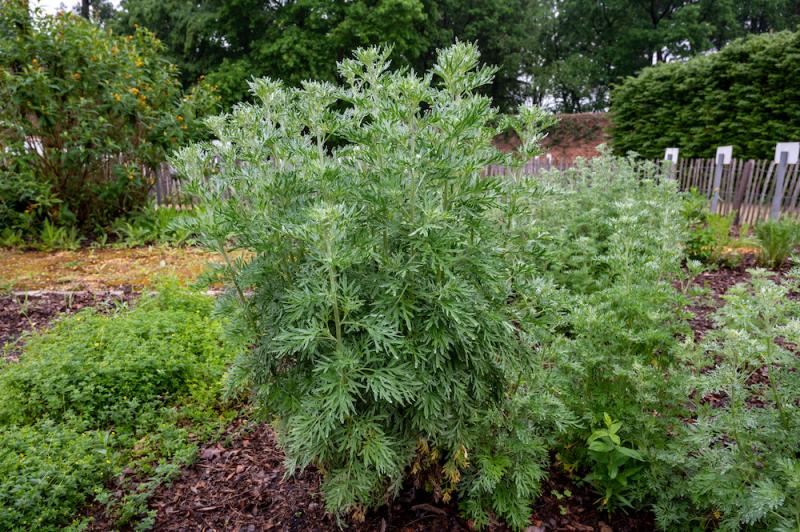
Bitter herbs like Artemisia's and especially wormwood can help balance the bitter with the sweet in our lives. It is natural to seek after sweetness in our lives and avoid bitter experiences. Spending time with friends and family, enjoying good food, experiencing love, taking in the beauty of nature, and other moments of joy are all sweet experiences that help nourish our souls.
But, many people in modern society seem to be obsessed with avoiding the bitter, both in their diets and their lives. They avoid whole foods and vegetables because they have a slight bitterness to them, instead consuming empty calorie foods. They avoid bitter and unpleasant experiences, plastering over them with endless emotionally empty distractions.
As a result, we have tremendous problems with obesity, diabetes, and other ailments related to the consumption of too many empty calorie foods. We also have problems with dulled attention spans and problems like depression, lethargy, and feeling emotionally isolated.
Sweet Builds, But Bitter Purifies
Moments of betrayal, separation, death of loved ones, and other experiences that are painful to ours souls may seem unfair and even cruel. But these bitter experiences also have a positive purpose that is related to the effect bitters have on the body.
Bitterness has an important role in our diets. The taste of bitter stimulates digestive secretions, aiding the digestion of food. I’ve observed that eating a salad with some bitter greens with my dinner improves my ability to digest both protein and fat. This appears to be linked to the stimulating effects bitters have on hydrochloric acid production and the release of bile salts and pancreatic enzymes. Likewise, the taste of bitters also appears to stimulate various defensive mechanisms such as the liver enzyme systems that help to detoxify chemicals in the body.
And just as bitter herbs help detoxify the body, bitter experiences help purify the soul. If we learn to embrace the bitterness of life it helps us let go of false beliefs, addictions to self-destructive ideas and behaviors, and illusions we have about life and other people.
This is where it is important to "take the bitter with the sweet." A little bit of bitterness in our diet helps us to digest our food to build stronger bodies and confronting our bitter experiences head on, helps focus our lives on what is real and important.
Embracing the Bitterness in Life
Embracing bitterness can be “a bitter pill to swallow.” When I first tried eating edible wild plants I often encountered this problem: I couldn’t understand how anyone could eat them because they were far too bitter for me. However, after years of tasting herbs and learning to eat my vegetables, I’ve come to appreciate slightly bitter foods and medicines and become averse to excessively sweet foods.
At the same time, I’ve also learned to handle the bitter experiences of life better. I’ve learned how to accept the bitter with the sweet, in my life as well as my diet.
Emotional Properties of Bitters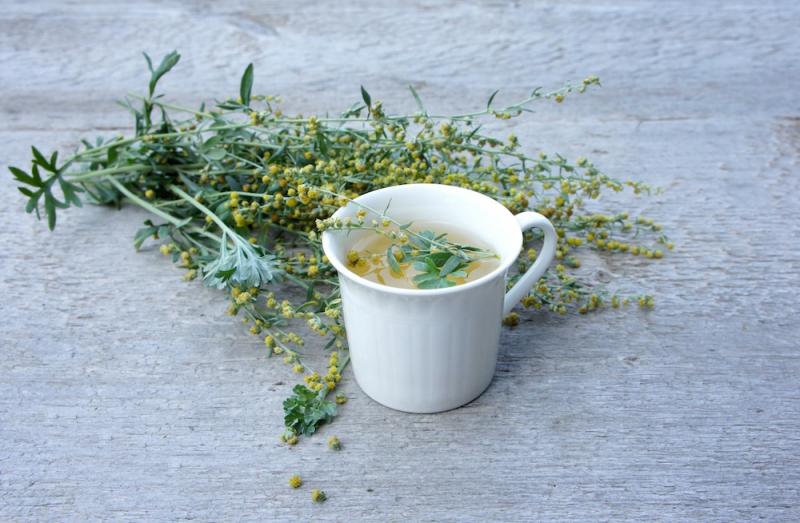
This brings us to the emotional healing properties of bitters and Artemisia’s like wormwood and how they can help us deal constructively with the bitter experiences of life.
In Seven Herbs, Plants as Teachers, Matthew Wood talks about how sagebrush (Artemisia tridentata) flower essence can help emotionally heal these bitter experiences. Personally, I’ve used sagebrush flower essence to help people let go of past trauma and abuse, cling to life, and renew their spirit after suffering desolate setbacks in life. I've also seen Sagebrush growing all over the Mountain West where I live, inhabiting and even thriving in environments that are too desolate for many other plants and I believe this is a lesson it can teach us.
In his newer The Earthwise Herbal book, Matthew indicates he uses wormwood for the same reasons because it is generally easier to obtain. He suggests it is particularly useful for people who seem depressed, hopeless, and even somewhat lifeless. I would add that they also have a history of childhood abuse or trauma that has left them with a negative or bitter attitude about life. It appears to activate their creative ability to see solutions to their life situation, which may be related to the use of absinthe by artists who felt it enhanced their creativity.
Using Wormwood
As an herb, I’ve used wormwood primarily as part of a formula. An infusion could also be used in an enema for parasites. It is generally taken as a tincture with only 1-5 drops needed up to several times per day.
Wormwood should only be used for relatively short periods of time. Usually, two to three weeks would be plenty enough time for it to work. You can use it for longer periods if it’s a small part of a formula. It should not be used by pregnant women, nursing mothers or young children.
Wormwood can also be used as an emotional remedy if you feel emotionally dead and depressed because of bitter experiences that have left you feeling desolate about life. Drinking the tea drinking would be good for emotional healing, but it is much too bitter for most people. Instead take just one drop twice daily or take the sagebrush flower essence.
Steven's Articles
February
-

-
Reishi (Ganoderma) Mushroom
A TCM remedy for calming the shen (spirit), balancing…
-

-
Eucommia Bark
A superior tonic that promotes kidney, structural,…
January
-

-
Goldenthread, Phellodendron, and Yellow Root
Three herbal remedies containing the infection-fighting…
-

-
Teasel
A traditional herb for healing bones and joints…
-

-
Barberry and Healthy Personal Boundaries
A thorny shrub for fighting infections and supporting…
December
-

-
The Evidence for Berberine
A yellow alkaloid found in traditional infection-fighting…
-

-
The Sensible Use of Caffeinated Herbs
Kola nuts, guarana, and yerba mate and other herbs…
-

-
The Health Benefits and Problems with Coffee
This popular caffeinated beverage can be beneficial…
October
-

-
Understanding Caffeine & Cellular Adaptation
Preserving the power of caffeine's buzz and the…
September
-

-
Horseradish
A pungent spice for aiding protein metabolism…
-

-
Banaba or Crepe Myrtle
A beautiful tree from Southeast Asia whose leaves…
August
-

-
Monkeyflowers
Flower essences to help see ourselves more clearly…
-

-
Mariposa Lilies
Strengthening the bond between mother and child…
-

-
The Noble Bay Leaf
A common kitchen herb for aiding digestion and…
-

-
Epimedium: Horny Goat Weed
A circulatory stimulant and kidney yang tonic…

